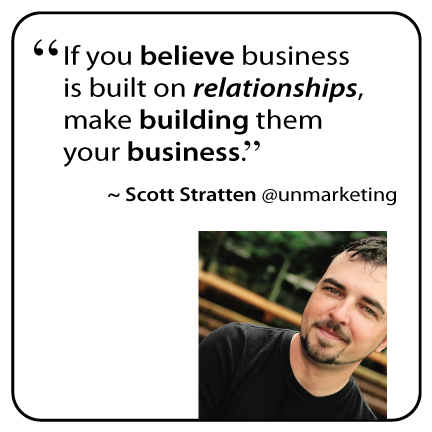 If nothing else, passionate entrepreneurs have eagerness and optimism in abundance. However, in business, as we know, there is no such thing as a sure thing. Each new venture is a learning lab in which the entrepreneur’s ambitions and ideas are tested against market realities and hard financial facts. The birth of a business is an inherently creative process in which possibilities are generated, taken apart, refined, and reconstituted, all to adapt to an uncertain environment that will persist long after the start up phase. Passionate entrepreneurs must guard against betting the bulk of their resources against one single strategy.
If nothing else, passionate entrepreneurs have eagerness and optimism in abundance. However, in business, as we know, there is no such thing as a sure thing. Each new venture is a learning lab in which the entrepreneur’s ambitions and ideas are tested against market realities and hard financial facts. The birth of a business is an inherently creative process in which possibilities are generated, taken apart, refined, and reconstituted, all to adapt to an uncertain environment that will persist long after the start up phase. Passionate entrepreneurs must guard against betting the bulk of their resources against one single strategy.
So how do we define success?
But what’s the point in knowing your numbers if they don’t help you reach a compelling destination? Mountain climbers are fuelled by an image of themselves on the summit, and successful entrepreneurs are drawn toward a future vision that is often a complete paradigm shift and is so magnetic it gives them the drive to succeed. So, in conceiving your business model, your strategy defines what business you are in: what you provide, for whom, and why you are doing it. You can improve your readiness to succeed as a start up entrepreneur by asking these three questions:
1. Why am I doing this?
Clarify your reasons and your goals. What future would prompt you to give up what you have now and take on the risk and challenge of starting a business? Why are you pursuing this venture? Is your WHY powerful enough?
Maybe you feel a higher calling/greater good to help people, to build something that outlasts you, leaves a legacy, creates a more meaningful way of doing things, or meets the needs of a changing society
Perhaps you have a strong drive to create a workplace based around the themes of a more just society, to work with friends, create a great place to work, and be part of a great team.
Alternatively, if it is your personal goals that drive you, what do you aim to achieve (personally and professionally) in the short-term (next 1-2 years) and longer-term (5+ years)?
The point is, making money should be a result, admittedly a very nice result, but a result all the same of having a business that is driven by a powerful WHY. Your WHY will often come from your past. Get to know your entrepreneurial personality. Who are you? What makes you tick? Look inside yourself, analyse what motivates you and use what drives you for the greater good. You must find a compelling WHY for setting your business up.
2. Is this my great idea or something that really meets a market need?
The problem with the great idea is that it concentrates the mind on the idea itself which is fine as far as it goes. But unless the idea is executed efficiently and with style and originality, then it doesn’t matter how great the idea is, the enterprise will fail. Ideas are certainly important, but so many people attempting to create a start up company become obsessed with proving that their idea is right rather than focussing on execution and making money. So much so that sometimes many years and resources are wasted doing it until the penny drops.
Nobody really cares if the idea is right, except the person who comes up with it. By all means come up with brilliant idea, but also have the guts to back it and see it through. You can be smart and passionate but you need to be able to admit when you are wrong, and move on when you are not.
So, go on, describe your business concept in fifty words or less: What will you offer? For whom? How do you define your market? What value will you create for customers? Are you solving an acute problem for customers, or providing a nice-to-have benefit? What customer pain are you addressing, directly or indirectly? Maybe you see a better solution for an existing problem?
In short, don’t get hooked on your great idea. You need to ensure there will be sufficient and sustainable market demand to support your business and enable it to thrive. Nobody will care whether you think your idea is a great one or not.
3. How can I leverage my relationships and resources?
So you have a powerful why, and a definite market need, but have you asked yourself the hard questions about whether you have the necessary experience, attitude and skills to pull your idea off?
Even if you have the best business idea in the world, without the knowledge and experience to match the passion, drive and commitment to see it through, it still stands a good chance of failing. In a complex world where not many of us have all the skills and knowledge to succeed alone, why try to?
Map your skills and experience. What can you do? What do you know? Who can help you? What assets are available for your use? In today’s knowledge based workplace, two minds or more are better than one. If you can leverage your relationships with other people then you will maximise your chances of success, particularly if they get your WHY.
Summary
OK, so this article has just a few more sub questions in addition to the big three to ask yourself, but before you get into the mechanics of planning the operational side of your business, the message is this: you need powerful reasons for setting up a business. Through media such as the internet, we now have the chance to usher in a truly transformative capitalism which places the market back into the hands of the people. So maybe when you have that powerful WHY, have an idea that meets a strong market need, and have access to the resources to execute the idea effectively, then you can aspire to climb that entrepreneurial mountain.
Copyright A� 2012 The Get Rich Mindset. All rights reserved.


